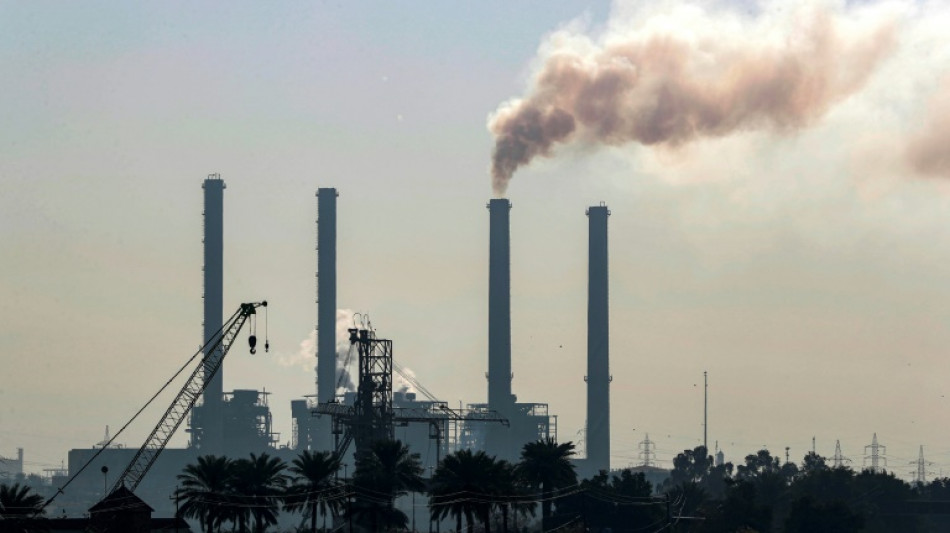
-
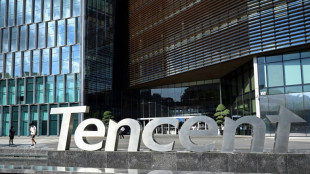 China's Tencent posts forecast-beating Q1 revenue on gaming growth
China's Tencent posts forecast-beating Q1 revenue on gaming growth
-
Trump presses Syria leader on Israel relations after lifting sanctions

-
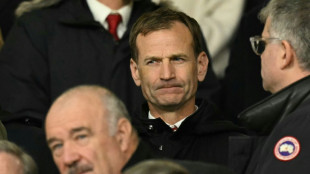 FA appoint former Man Utd sporting director Dan Ashworth as chief football officer
FA appoint former Man Utd sporting director Dan Ashworth as chief football officer
-
Stop holding opponents incommunicado, UN experts tell Venezuela
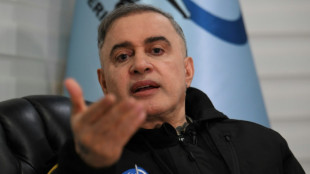
-
 Indonesian filmmakers aim to impress at Cannes
Indonesian filmmakers aim to impress at Cannes
-
Trump presses Syria leader on Israel after lifting sanctions

-
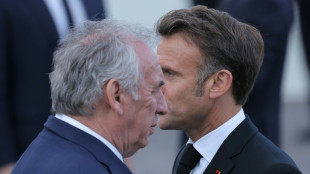 French PM to testify on child abuse scandal
French PM to testify on child abuse scandal
-
Players stuck in middle with IPL, national teams on collision course

-
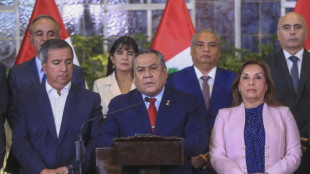 Peru PM quits ahead of no-confidence vote
Peru PM quits ahead of no-confidence vote
-
Strikes kill 29 in Gaza as hostage release talks ongoing
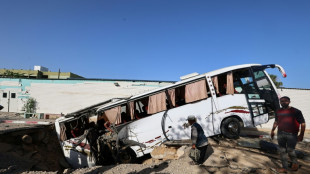
-
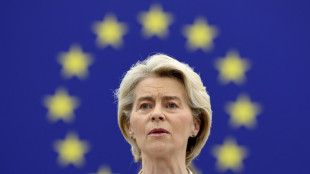 Court raps Brussels for lack of transparency on von der Leyen vaccine texts
Court raps Brussels for lack of transparency on von der Leyen vaccine texts
-
France summons cryptocurrency businesses after kidnappings

-
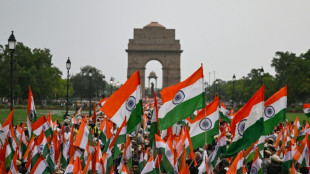 Pakistan returns Indian border guard captured after Kashmir attack
Pakistan returns Indian border guard captured after Kashmir attack
-
Baidu plans self-driving taxi tests in Europe this year
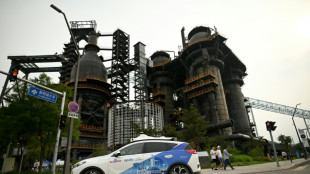
-
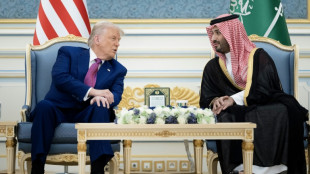 Trump meets new Syria leader after lifting sanctions
Trump meets new Syria leader after lifting sanctions
-
Equity markets swing as China-US trade euphoria fades
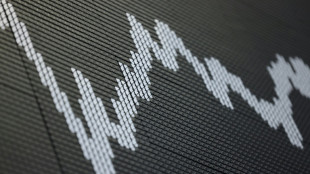
-
 Burberry warns 1,700 jobs at risk after annual loss
Burberry warns 1,700 jobs at risk after annual loss
-
Trump to meet new Syrian leader after offering sanctions relief
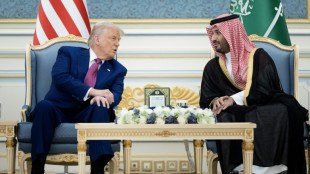
-
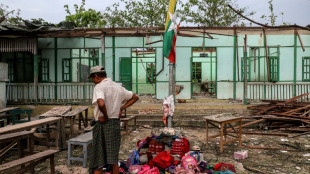 'Children are innocent': Myanmar families in grief after school air strike
'Children are innocent': Myanmar families in grief after school air strike
-
Colombia joins Belt and Road initiative as China courts Latin America
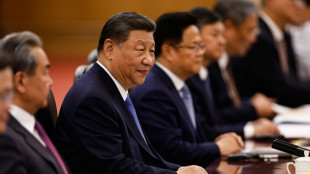
-
 Australian champion cyclist Dennis gets suspended sentence after wife's road death
Australian champion cyclist Dennis gets suspended sentence after wife's road death
-
Protection racket? Asian semiconductor giants fear looming tariffs

-
 S. Korea Starbucks in a froth over presidential candidates names
S. Korea Starbucks in a froth over presidential candidates names
-
NATO hatches deal on higher spending to keep Trump happy
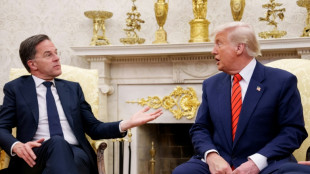
-
 Eurovision stage a dynamic 3D 'playground': producer
Eurovision stage a dynamic 3D 'playground': producer
-
Cruise unleashes 'Mission: Impossible' juggernaut at Cannes

-
 Suaalii in race to be fit for Lions Tests after fracturing jaw
Suaalii in race to be fit for Lions Tests after fracturing jaw
-
Pacers oust top-seeded Cavs, Nuggets on brink

-
 Sony girds for US tariffs after record annual net profit
Sony girds for US tariffs after record annual net profit
-
China, US slash sweeping tariffs in trade war climbdown
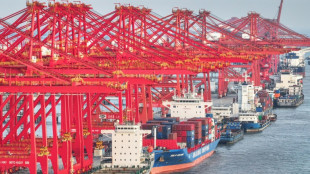
-
 Human Rights Watch warns of migrant worker deaths in 2034 World Cup host Saudi Arabia
Human Rights Watch warns of migrant worker deaths in 2034 World Cup host Saudi Arabia
-
Sony logs 18% annual net profit jump, forecast cautious

-
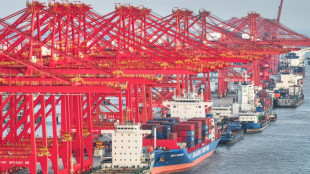 China, US to lift sweeping tariffs in trade war climbdown
China, US to lift sweeping tariffs in trade war climbdown
-
Asian markets swing as China-US trade euphoria fades
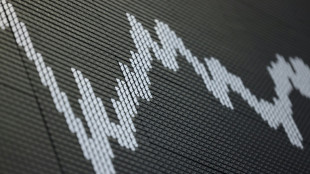
-
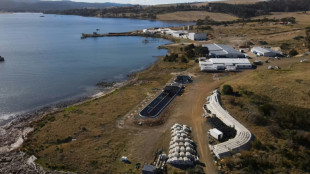 Australian seaweed farm tackles burps to help climate
Australian seaweed farm tackles burps to help climate
-
Judgment day in EU chief's Covid vaccine texts case
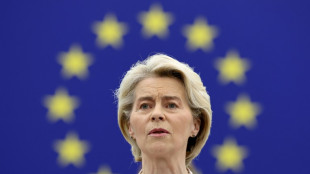
-
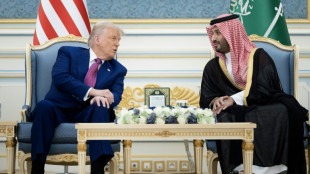 Trump set to meet Syrian leader ahead of Qatar visit
Trump set to meet Syrian leader ahead of Qatar visit
-
Misinformation clouds Sean Combs's sex trafficking trial
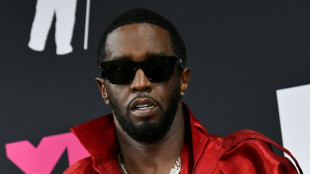
-
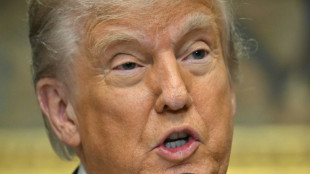 'Panic and paralysis': US firms fret despite China tariff reprieve
'Panic and paralysis': US firms fret despite China tariff reprieve
-
Menendez brothers resentenced, parole now possible

-
 'Humiliated': Combs's ex Cassie gives searing testimony of abuse
'Humiliated': Combs's ex Cassie gives searing testimony of abuse
-
Latin America mourns world's 'poorest president' Mujica, dead at 89
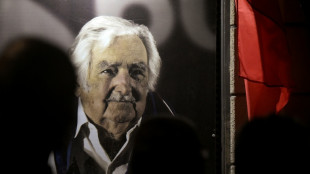
-
 Masters champion McIlroy to headline Australian Open
Masters champion McIlroy to headline Australian Open
-
Sean Combs's ex Cassie says he coerced her into 'disgusting' sex ordeals

-
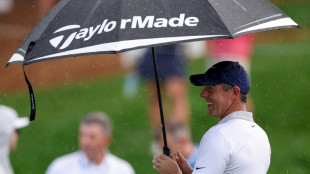 McIlroy, Scheffler and Schauffele together for rainy PGA battle
McIlroy, Scheffler and Schauffele together for rainy PGA battle
-
Uruguay's Mujica, world's 'poorest president,' dies aged 89
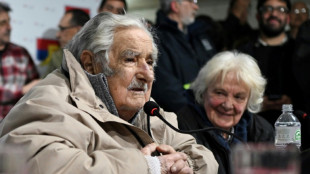
-
 Lift-off at Eurovision as first qualifiers revealed
Lift-off at Eurovision as first qualifiers revealed
-
Forest striker Awoniyi placed in induced coma after surgery: reports

-
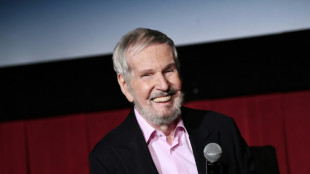 'Kramer vs Kramer' director Robert Benton dies: representative
'Kramer vs Kramer' director Robert Benton dies: representative
-
Tatum suffered ruptured right Achilles in playoff defeat: Celtics


US ends waiver for Iraq to buy Iranian electricity
Washington has declined to renew a sanctions waiver that allowed Iraq to buy electricity from neighbouring Iran, a spokesperson for the American embassy in Baghdad said on Sunday.
Despite having immense oil and gas reserves, Iraq remains dependent on imports to meet its energy needs, and Iran supplies a third of the country's gas and electricity.
The Baghdad government, which hopes to achieve energy self-sufficiency by 2028, said it had prepared "for all scenarios" regarding the waiver.
"On March 8, the U.S. Department of State did not renew the waiver for Iraq to purchase Iranian electricity," the US embassy spokesperson said.
The decision "ensures we do not allow Iran any degree of economic or financial relief", the spokesperson added.
The statement did not mention Iranian gas imports, which are crucial for Iraq's domestic electricity generation.
The waiver was introduced in 2018, when Washington reimposed sanctions on Tehran after US President Donald Trump abandoned a nuclear deal with Iran during his first term in office.
Since returning to the White House in January, Trump has reinstated his policy of exerting "maximum pressure" against Iran.
"The President's maximum pressure campaign is designed to end Iran's nuclear threat, curtail its ballistic missile program, and stop it from supporting terrorist groups," the embassy spokesperson said on Sunday.
Calling Iran "an unreliable energy supplier", the spokesperson urged Baghdad "to eliminate its dependence on Iranian sources of energy as soon as possible".
"Electricity imports from Iran do not contribute substantially to power delivered to the Iraqi people," the spokesperson added.
- 'All scenarios' -
Decades of war have left Iraq's infrastructure in a pitiful state, with chronic power cuts that become worse during the blistering summer when temperatures often reach 50 Celsius (122 Fahrenheit).
Many households receive just a few hours of mains electricity per day, and those that can afford it use private generators to keep appliances such as fridges running.
Tehran also regularly cuts off its supply, worsening the power shortages that affect the daily lives of 46 million Iraqis.
Iraqi government spokesman Bassem al-Awadi told state media on Saturday that the authorities had prepared "for all scenarios" regarding the waiver, including the use of gas platform vessels via a pipeline connected to power stations in the southern province of Basra.
Iraq hopes to increase its natural gas production to help reduce dependence on imports, and has repeatedly stressed the need to diversify energy sources.
Last year it began importing electricity from Jordan and Turkey, and it also hopes to connect to the electricity grid of Gulf countries.
The government's plans also include recovering flared gas, which is natural gas produced during crude oil extraction.
Gas flaring is the polluting practice of burning off excess gas during oil drilling. The government has made eliminating this a priority, and plans to halt it by the end of 2027.
P.Vogel--VB

